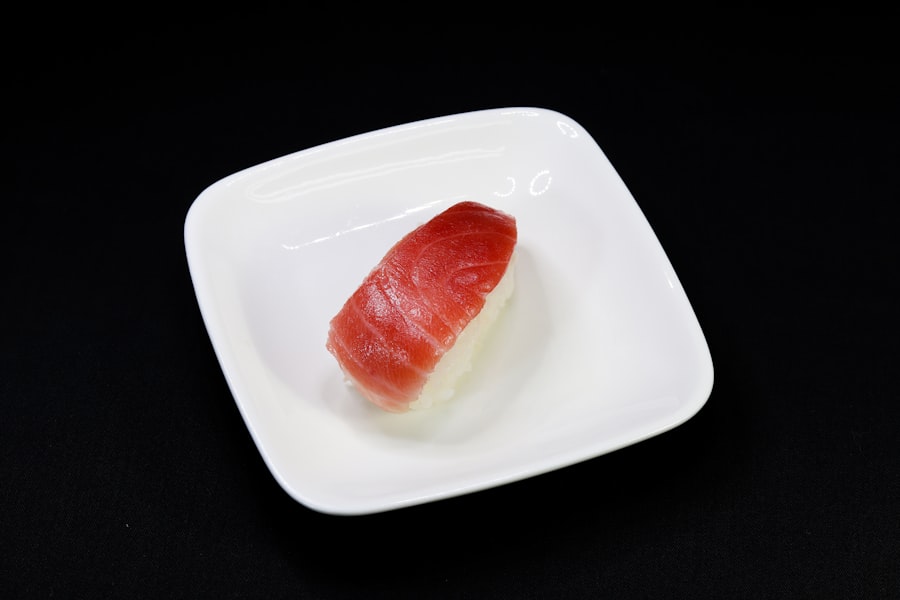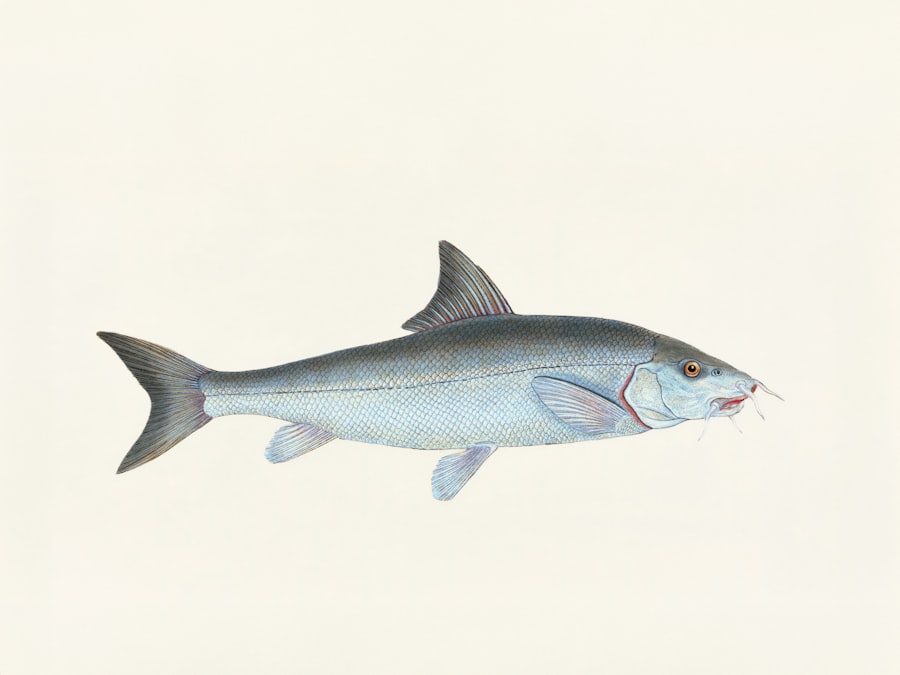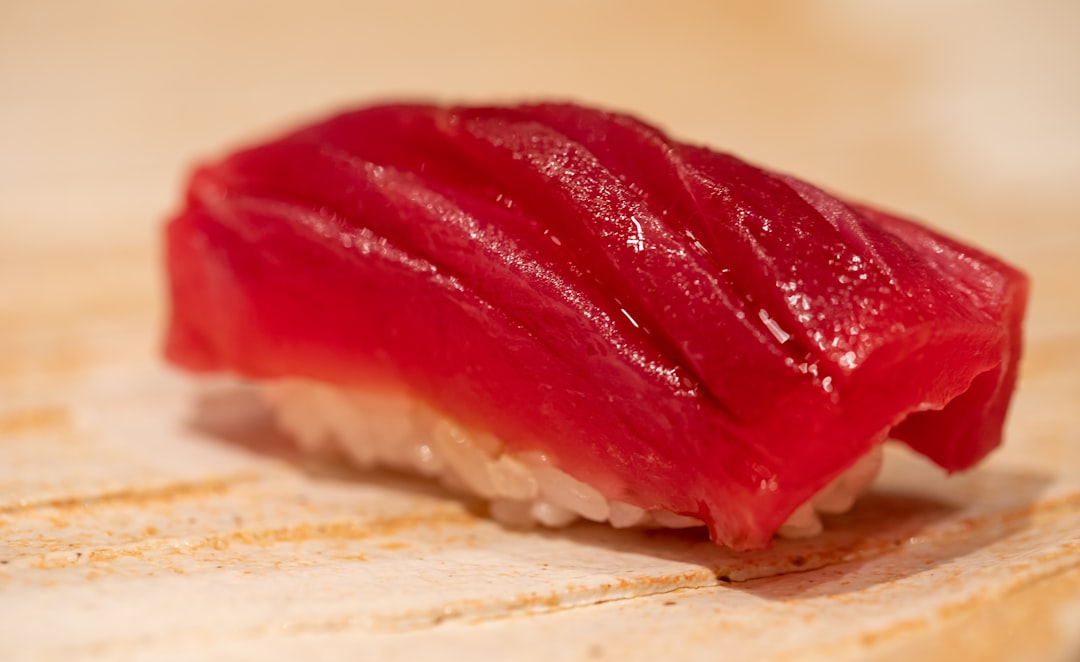MSC Certified Tuna refers to tuna that has been certified by the Marine Stewardship Council (MSC), an international non-profit organization dedicated to promoting sustainable fishing practices. The MSC certification process ensures that tuna fisheries meet rigorous standards for sustainability, which include maintaining healthy fish populations, minimizing environmental impact, and ensuring effective management practices. This certification is a mark of quality and responsibility, indicating that the tuna has been sourced from fisheries that adhere to sustainable practices.
The MSC label is recognized globally and serves as a beacon for consumers who are increasingly concerned about the origins of their seafood. By choosing MSC Certified Tuna, consumers can feel confident that they are supporting fisheries that prioritize ecological balance and the long-term viability of marine resources. This certification not only benefits the environment but also supports fishing communities that rely on sustainable practices for their livelihoods.
Key Takeaways
- MSC Certified Tuna ensures sustainable fishing practices that protect marine ecosystems.
- The certification process involves rigorous assessment of fishing methods and environmental impact.
- MSC certification promotes healthier oceans by reducing overfishing and bycatch.
- Consumers can identify MSC Certified Tuna through the MSC blue label on packaging.
- While MSC certification supports sustainability, debates exist regarding its effectiveness and alternatives.
The Process of MSC Certification for Tuna
The journey to MSC certification begins with a comprehensive assessment of the fishery in question. This assessment evaluates various factors, including the health of the tuna stock, the impact of fishing on the marine ecosystem, and the effectiveness of management practices in place. Independent certifiers, who are experts in marine biology and fisheries management, conduct these assessments to ensure impartiality and accuracy.
Once a fishery is deemed to meet the MSC’s sustainability criteria, it is awarded certification. However, this is not a one-time achievement; certified fisheries must undergo regular audits to maintain their status. These audits ensure that they continue to adhere to the MSC’s standards and adapt to any changes in environmental conditions or fishing practices.
The Importance of MSC Certification for Tuna

The importance of MSC certification extends beyond mere consumer choice; it plays a crucial role in promoting sustainable fishing practices worldwide. By setting high standards for fisheries, the MSC encourages fishers to adopt more responsible methods that protect marine ecosystems. This certification acts as a catalyst for change, motivating fisheries to improve their practices and contribute to the health of ocean environments.
Moreover, MSC certification helps to combat overfishing, a significant threat to global fish populations. By supporting certified fisheries, consumers can help ensure that tuna stocks remain stable and that fishing practices do not deplete marine resources. The certification also fosters transparency in the seafood supply chain, allowing consumers to make informed choices about the products they purchase.
In this way, MSC Certified Tuna represents not just a product but a commitment to sustainable practices that benefit both the environment and future generations.
The Environmental Impact of MSC Certified Tuna Fishing
| Metric | MSC Certified Tuna Fishing | Non-Certified Tuna Fishing | Notes |
|---|---|---|---|
| Bycatch Rate | 5% | 15% | MSC certification requires measures to reduce bycatch of non-target species. |
| Impact on Tuna Stock | Within sustainable limits | Often exceeds sustainable limits | MSC ensures fishing practices maintain healthy tuna populations. |
| Carbon Footprint (kg CO2 per ton of tuna) | 1,200 | 1,800 | MSC promotes efficient fishing methods reducing fuel consumption. |
| Habitat Impact | Minimal | Moderate to High | MSC standards avoid destructive fishing gear and practices. |
| Compliance with Fishing Quotas | 95% | 60% | MSC certification enforces adherence to quotas to prevent overfishing. |
| Use of Selective Fishing Gear | High | Low | Selective gear reduces unwanted catch and environmental damage. |
The environmental impact of MSC Certified Tuna fishing is significantly lower than that of non-certified fisheries. The MSC’s rigorous standards require fisheries to demonstrate that their practices do not harm marine ecosystems or other species. For instance, certified fisheries must implement measures to reduce bycatch—the unintentional capture of non-target species—thereby protecting vulnerable marine life such as sea turtles and sharks.
Additionally, MSC Certified Tuna fisheries are required to monitor their environmental impact continuously. This includes assessing the health of tuna populations and ensuring that fishing methods do not disrupt habitats or contribute to ecosystem degradation. By adhering to these standards, certified fisheries play a vital role in preserving biodiversity and maintaining the balance of marine ecosystems, which is essential for the overall health of the oceans.
The Health and Safety of MSC Certified Tuna
Health and safety are paramount concerns when it comes to seafood consumption, and MSC Certified Tuna offers assurances in this regard. The certification process includes stringent checks on fishing practices, handling, and processing methods to ensure that the tuna is safe for consumption. This includes monitoring for contaminants such as mercury and other harmful substances that can accumulate in fish.
Furthermore, MSC Certified Tuna is often fresher than non-certified options due to the emphasis on responsible fishing practices and traceability throughout the supply chain. Consumers can trust that they are purchasing high-quality tuna that has been handled with care from catch to plate. This focus on health and safety not only benefits consumers but also supports the reputation of fisheries committed to sustainable practices.
The Sustainability of MSC Certified Tuna Fishing

Sustainability is at the core of MSC certification, which aims to ensure that tuna fishing can continue for generations without depleting fish stocks or harming marine ecosystems. The MSC’s standards are designed to promote responsible management practices that balance economic viability with ecological health. This means that certified fisheries must demonstrate effective stock assessments, implement harvest control rules, and engage in adaptive management strategies.
By prioritizing sustainability, MSC Certified Tuna fisheries contribute to the resilience of marine environments. Healthy fish populations support diverse ecosystems and provide livelihoods for fishing communities around the world. The emphasis on sustainable practices also encourages innovation within the industry, as fishers seek new methods to minimize their environmental footprint while maximizing their catch.
How to Identify MSC Certified Tuna
Identifying MSC Certified Tuna is straightforward for consumers who wish to make responsible seafood choices. The most reliable way is to look for the blue MSC label on packaging or at seafood counters. This label signifies that the product has been sourced from a fishery that meets the MSC’s rigorous sustainability standards.
In addition to the label, consumers can also inquire about the source of their tuna when dining out or purchasing from local markets. Many restaurants and retailers are increasingly aware of consumer demand for sustainable seafood and may provide information about their sourcing practices. By being proactive and asking questions, consumers can ensure they are making informed choices about the tuna they purchase.
The Role of Consumer Awareness in Choosing MSC Certified Tuna
Consumer awareness plays a pivotal role in driving demand for MSC Certified Tuna and promoting sustainable fishing practices. As more individuals become educated about the importance of sustainability in seafood sourcing, they are more likely to seek out products with credible certifications like the MSC label. This shift in consumer behavior can influence fisheries and retailers to prioritize sustainable options.
Moreover, increased awareness can lead to greater advocacy for marine conservation efforts. When consumers understand the impact of their choices on ocean health, they are more likely to support initiatives aimed at protecting marine ecosystems and promoting responsible fishing practices. This collective action can create a ripple effect throughout the industry, encouraging more fisheries to pursue certification and adopt sustainable methods.
The Debate Surrounding MSC Certification for Tuna
Despite its many benefits, MSC certification is not without controversy.
There are concerns about the effectiveness of bycatch reduction measures and whether all certified fisheries truly adhere to best practices.
Additionally, some stakeholders question whether the certification process is accessible enough for smaller fisheries or those in developing regions. They argue that high costs associated with certification may exclude these fisheries from participating in sustainable fishing initiatives. This debate highlights the need for ongoing dialogue within the industry about how best to balance sustainability with economic viability for all fishers.
Alternatives to MSC Certified Tuna
While MSC Certified Tuna represents a responsible choice for consumers seeking sustainable seafood options, there are alternatives available as well. Other certifications exist, such as those from the Global Aquaculture Alliance (GAA) or Friend of the Sea (FOS), which also promote sustainable fishing practices but may have different criteria or focus areas. Consumers can also consider sourcing tuna from local fisheries that practice sustainable methods but may not yet have formal certification.
Engaging with local fishers or community-supported fisheries can provide insight into responsible sourcing while supporting local economies. Ultimately, exploring various options allows consumers to make informed decisions based on their values and priorities regarding sustainability.
Is MSC Certified Tuna Safe to Eat?
In conclusion, MSC Certified Tuna is generally considered safe to eat due to its rigorous certification process focused on sustainability, health, and safety standards. By choosing tuna with the MSC label, consumers can feel confident that they are supporting responsible fishing practices that prioritize ecological balance and long-term viability of marine resources. However, it is essential for consumers to remain informed about ongoing debates surrounding certification standards and alternative options available in the market.
By staying engaged with issues related to seafood sustainability, individuals can make choices that align with their values while contributing positively to marine conservation efforts. Ultimately, choosing MSC Certified Tuna represents a commitment not only to personal health but also to the health of our oceans and future generations.
When considering the safety and sustainability of MSC certified tuna, it’s important to explore various resources that provide insights into seafood certifications. For a deeper understanding of the topic, you can read more about the implications of seafood sustainability in this related article: here. This article discusses the criteria for certification and the benefits of choosing sustainably sourced seafood.
WATCH THIS! The $10 Billion Lie: Why Your “Dolphin-Safe” Tuna Isn’t Safe
FAQs
What does MSC certified tuna mean?
MSC certified tuna means that the tuna has been caught in a fishery that meets the Marine Stewardship Council’s standards for sustainable fishing. This certification ensures that the fishing practices do not harm the marine environment and that tuna populations are maintained at healthy levels.
Is MSC certified tuna safe to eat?
Yes, MSC certified tuna is safe to eat. The certification focuses on sustainable fishing practices and does not compromise food safety. Tuna from MSC certified fisheries is subject to the same food safety regulations and standards as other seafood products.
How does MSC certification impact tuna sustainability?
MSC certification promotes sustainable fishing by requiring fisheries to minimize environmental impact, avoid overfishing, and protect marine habitats. This helps ensure that tuna populations remain healthy and that the ecosystem is preserved for future generations.
Does MSC certification guarantee the tuna is free from contaminants?
MSC certification primarily addresses sustainability and environmental impact, not contaminant levels. However, tuna sold commercially, including MSC certified tuna, must comply with food safety regulations that limit contaminants such as mercury and other pollutants.
Can I trust the MSC label on tuna products?
Yes, the MSC label is a trusted certification recognized globally. It indicates that the tuna comes from a fishery that has been independently assessed and meets strict sustainability criteria set by the Marine Stewardship Council.
Where can I find MSC certified tuna?
MSC certified tuna is available in many supermarkets, seafood markets, and restaurants worldwide. Look for the blue MSC ecolabel on packaging or menus to identify certified products.
Does MSC certification affect the price of tuna?
MSC certified tuna may sometimes be priced higher than non-certified tuna due to the costs associated with sustainable fishing practices and certification. However, many consumers consider the environmental benefits worth the potential price difference.
Is MSC certification the only standard for sustainable tuna?
No, MSC is one of several certification programs focused on sustainable seafood. Other certifications and eco-labels also exist, but MSC is among the most widely recognized and respected for wild-caught seafood sustainability.
